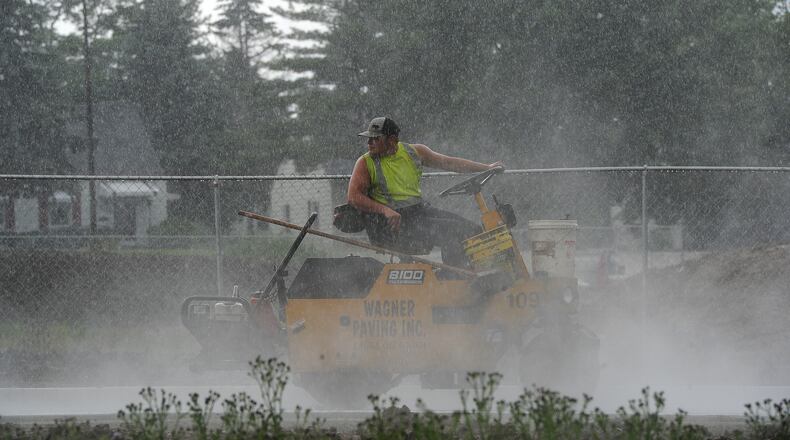More than half (54%) of all vehicle-related heatstroke deaths in children are caused by a child accidentally being left in the car, and 26% are from a child getting into a hot car unsupervised, said Melissa Howell, Greene County Health Commissioner.
“We have to impress upon our children that the vehicle is not a playground, and that playing in and around the car is actually very dangerous,” Howell said. “Most years, one child dies from heatstroke nearly every 10 days in the United States from being left in a car or crawling into an unlocked vehicle. What is most tragic is that every single one of these deaths could have been prevented.”
In 2019, there were 53 preventable deaths of children in vehicles. But in 2020, there were 24 deaths, nearly half that number.
Some children gain access into a vehicle without the knowledge of an adult, and may be unable to get out of the car, especially if child locks are activated.
A child’s body temperature can rise up to five times faster than an adult’s, and heatstroke can occur in outside temperatures as low as 57 degrees. On an 80-degree day, a car can reach deadly levels in just 10 minutes.
Know the warning signs of heatstroke, which include: red, hot, and moist or dry skin; no sweating; a strong rapid pulse or a slow weak pulse; nausea; confusion; or acting strangely.
Dr. Nancy Pook, emergency physician with Kettering Health, said when people get overheated, symptoms can vary, from exhaustion to even vomiting.
If a person can’t keep fluids down, are vomiting, or confused, those are signs they need urgent medical attention.
“Where if you don’t feel like you can play the next game of softball, it might be time to go inside and find a way to cool down,” Pook said.
It can be harder from some families to stay cool in their homes, particularly those without air conditioning.
“A lot of people just circulate fans, and that’s OK when it’s not really hot, but older people, especially those with health conditions on top, it can really increase their illness. For example, asthma can get worse,” said Julie Wickline, clinical services director at Five Rivers Health Centers.
Wickline said at Five Rivers they encourage people to wear light colored clothing, keep the curtains drawn to help block the sun and keep the house cool, and seek alternatives if they can like going to a neighbor’s house, the library or a cooling center.
“Avoid strenuous activity, and it’s important for family members or neighbors to check on each other to make sure everyone is okay,” Wickline said.
Preventing heat stroke with cars
• Make it a habit to look in the back seat every time you exit the car. Leaving something in your back seat, like a phone or even a shoe, every time can help you develop this habit.
• Never leave a child in a vehicle unattended.
• Always lock the car and put the keys out of reach.
If you are a bystander and see a child in a hot vehicle:
• Make sure the child is okay and responsive. If not, call 911 immediately.
• If the child appears to be okay, attempt to locate the parents or have the facility’s security or management page the car owner over the PA system.
• If there is someone with you, one person should actively search for the parent or guardian while the other waits at the car.
• If the child is not responsive or appears to be in distress, attempt to get into the car to assist the child — even if that means breaking a window.
Many states have “Good Samaritan” laws that protect people from lawsuits for getting involved to help a person in an emergency.
Source: Greene County Public Health
About the Author

